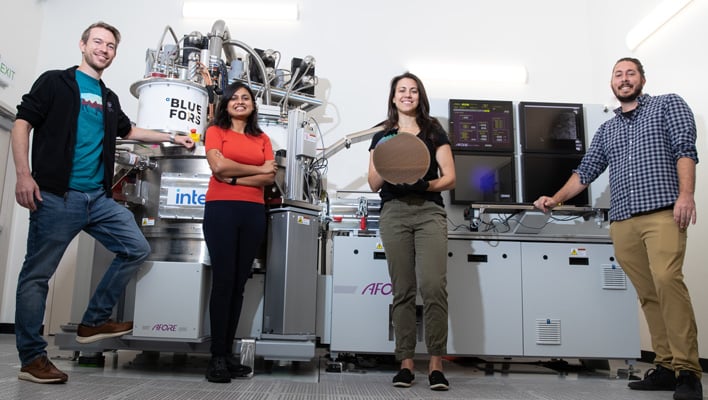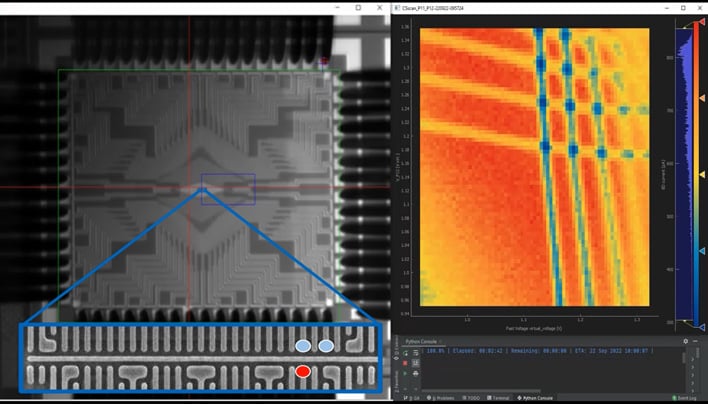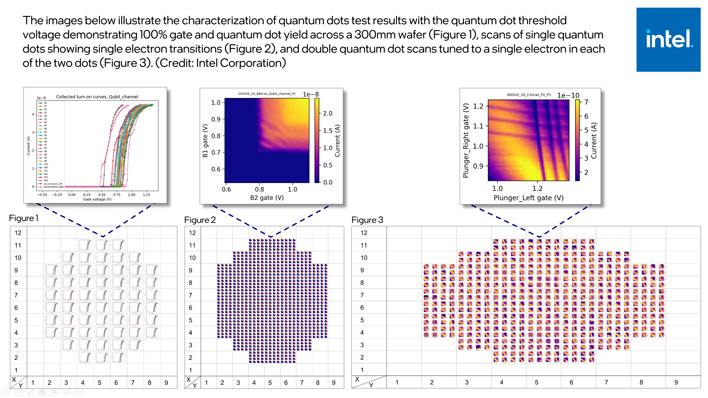Intel Achieves Quantum Computing Chip Fab Milestone Paving The Way For Mass Production
Quantum computers encode data as qubits, which are analogous to bits in conventional computing. Qubits are not restrained to 1’s and 0s states though, and can exist as a combination of the two in what’s known as a superposition. Intel likens this to a coin that can either be heads, tails, or spinning. While spinning there’s a certain probability that the coin is either heads or tails at a given time, but it cannot be known unless the coin is stopped.
If a spinning coin can represent two states at once, heads or tails, then two spinning coins can represent four (HH, TT, HT, TH). Three could represent eight states, and the possibilities expand rapidly from there. There’s far more math involved to fully explain it than we can get into here, but suffice to say that current quantum computer performance is largely defined by the number of qubits available to a given quantum computing system.
Qubits may seem like magic, but they are manufactured in silicon as so called “spin qubits,” with similar techniques to conventional transistors. Aside from architectural differences, the big asterisk is that qubits are incredibly fragile and require exceptionally low temperatures and isolation to maintain stability. Such systems are maintained and perform at the edge of absolute zero.
Typical research and lab processes focus on creating one quantum chip at a time. However, Intel was able to use extreme ultraviolet (EUV) lithography to span a typical 300mm wafer with many chips. Intel says its latest research demonstrates the strongest uniformity and yield results to date, at around 95%. These test wafers are going to be investigated to identify areas of the fabrication process that can be further optimized.

“Intel continues to make progress toward manufacturing silicon spin qubits using its own transistor manufacturing technology,” said James Clarke, director of Quantum Hardware at Intel. “The high yield and uniformity achieved show that fabricating quantum chips on Intel’s established transistor process nodes is the sound strategy and is a strong indicator for success as the technologies mature for commercialization.”
“In the future, we will continue to improve the quality of these devices and develop larger scale systems, with these steps serving as building blocks to help us advance quickly,” Clarke said.
Intel says the full results of this research are being presented today at the 2022 Silicon Quantum Electronics Workshop in Orford, Quebec, Canada.
All Images Credit: Intel Corporation




